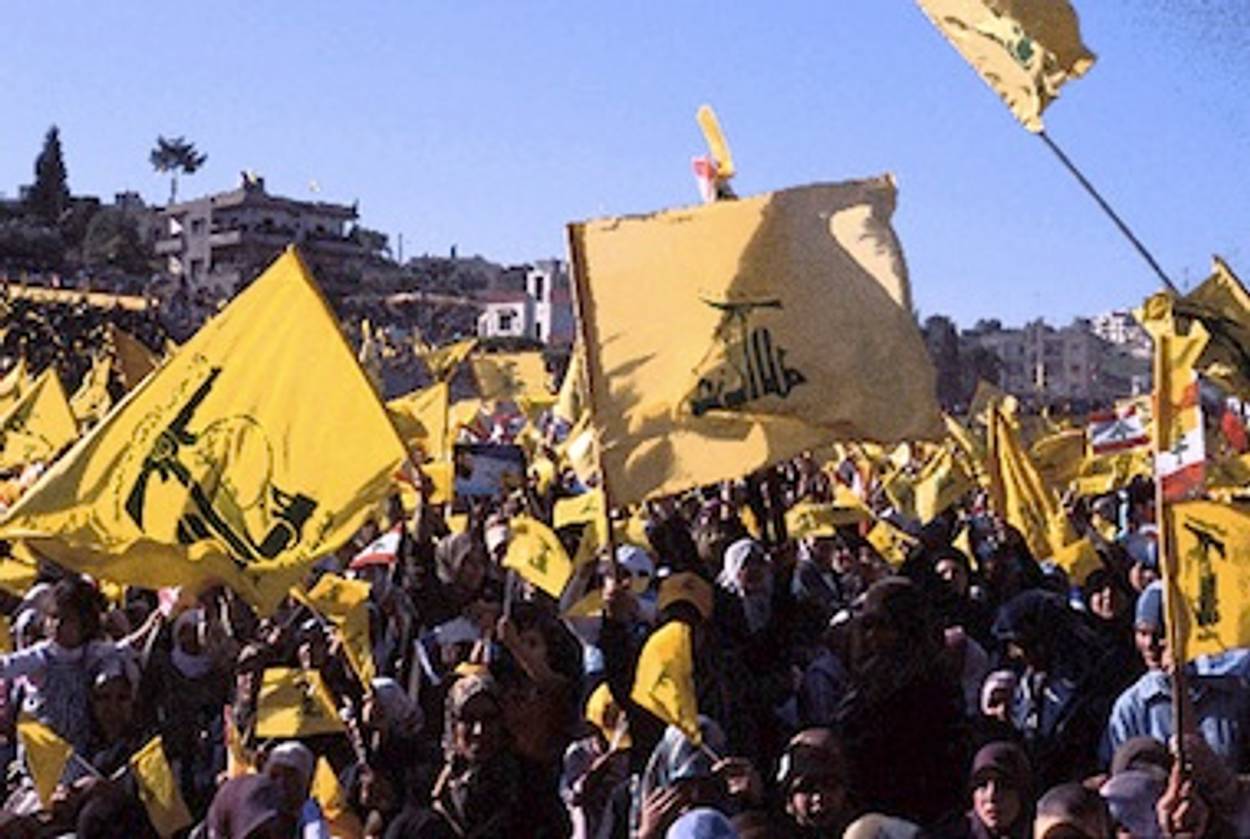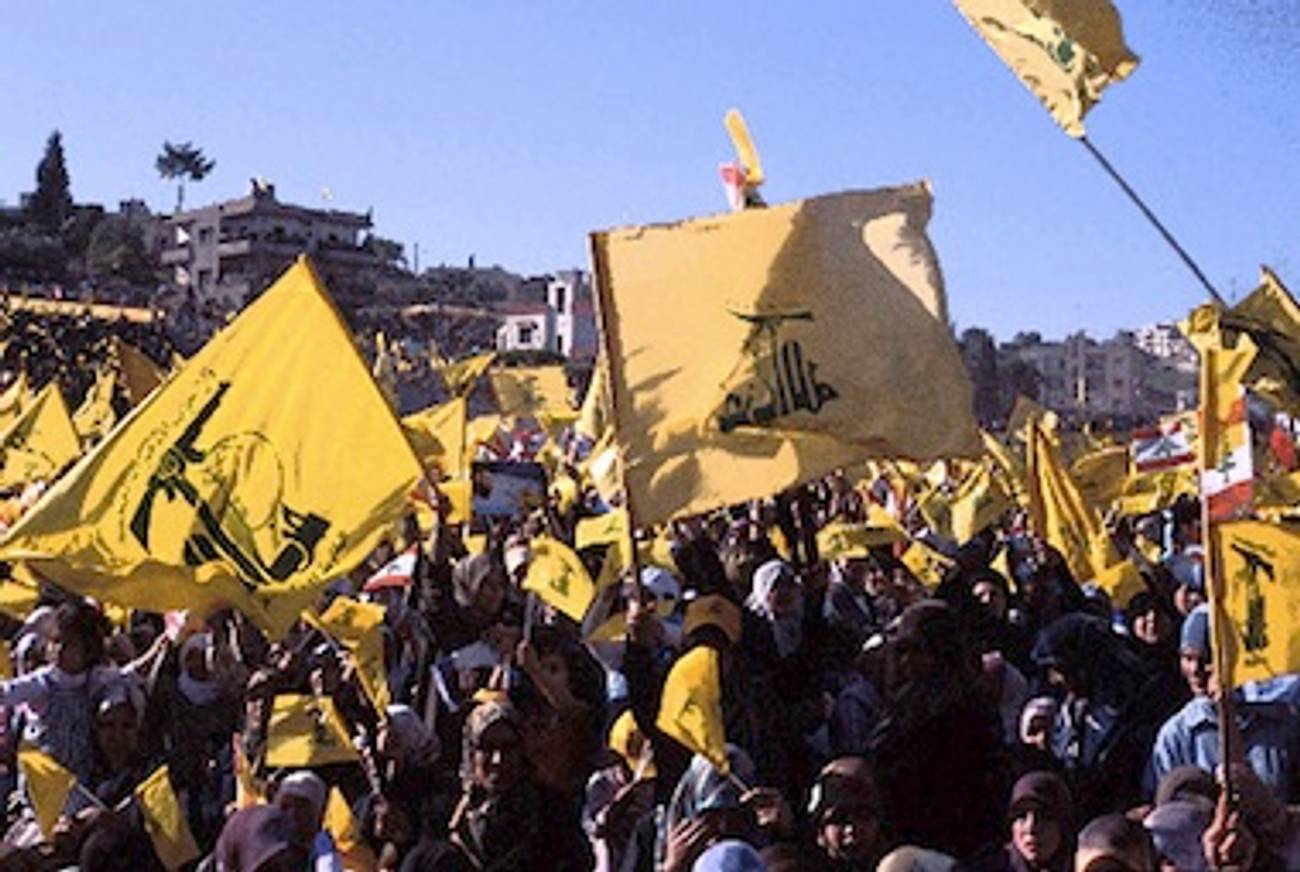How Assad Impacts Hezbollah’s Survival
Hanin Ghaddar on the fate of Hezbollah if Assad falls




In the Times today, Hanin Ghaddar opines about the bind Hezbollah is in. According to Ghaddar, the organization’s continued support for the Assad regime–which allows unfettered financial support from Iran–is impacting the group’s reception in its host country Lebanon. She writes:
Today, Hezbollah is regarded by the Arab street as an ally of a dictator who is killing his people. Losing regional popularity is one thing, but losing its constituency at home is something Hezbollah cannot tolerate. Parliamentary elections are scheduled for 2013, and Hezbollah prefers not to take any risks. It will do whatever it takes to maintain its control in Lebanon. So will Iran. Iran is doing its utmost to prolong Mr. Assad’s rule in Syria, and it would likely do much more to hang on to Lebanon. Tehran can’t afford to lose both.
The erosion of Hezbollah’s control started with the arrest on Aug. 9 of Bashar al-Assad’s friend and adviser, the former Lebanese information minister Michel Samaha, in connection with a seizure of explosives that were to be used in northern Lebanon. Lebanese authorities jointly charged him and the Damascus-based Syrian national security chief, Gen. Ali Mamluk, with plotting “terrorist attacks” and the assassination of political and religious figures in Lebanon.
Ghaddar concludes with this:
Mr. Assad may not yet realize that he is a dead man walking, but Hezbollah does. That does not mean, however, that the party will change its stance on Syria as the Palestinian militant group Hamas has done. If it did, it would lose its supply lines from Iran. So Hezbollah’s main objective is to avoid a full explosion before the parliamentary elections. After all, an election victory would allow Hezbollah to maintain its political control over Lebanon democratically, without having to resort to arms. Tehran would also prefer to avoid any war that would force Hezbollah to get involved — namely, a war with Israel. That could lead to the party’s losing both its weapons and its supporters.
Back in 2010, Ghaddar wrote a stellar piece for Tablet about her grandmother, who, like many in Lebanon, loves Hezbollah for its defiant swagger and the hope the group claims to bring to the Lebanese.
My grandmother does not like questions and arguments that would challenge her comforting bubble of stereotypes. It is very simple for her: Jews are evil; Hezbollah is good. Black-and-white reasoning is the easiest way to live in the south of Lebanon, under constant threat of another war between Hezbollah and Israel. Either you question Hezbollah and its divine power, and thus face fears of what another war could bring, or you believe blindly in the “wisdom and power of the Party of God.”
All her life my grandmother struggled to raise her seven children and create a home for herself and her family—a home that is at risk of being demolished each time a military conflict erupts. Yet she cannot tolerate arguments related to Hezbollah and its credibility. “Hezbollah is defending our land. They know what they are doing,” she tells me with the confidence of an elder who knows better. “The Iranians are helping us and we can only thank them for their support.”
She believes strongly in wilayat al-faqih, the doctrine that the Supreme Leader of the Islamic Republic of Iran embodies the will of God. You cannot doubt the sacred.
I can’t help but wonder what her grandmother thinks now.
Related: My Grandmother Loves Hezbollah [Tablet Magazine]
Can Hezbollah Survive the Fall of Assad? [NYT]
Adam Chandler was previously a staff writer at Tablet. His work has appeared in the New York Times, the Wall Street Journal, the Atlantic, Slate, Esquire, New York, and elsewhere. He tweets @allmychandler.